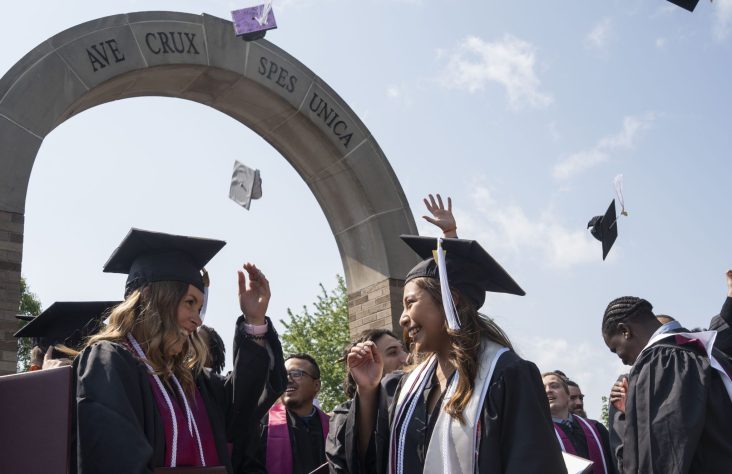April 23, 2013 // Uncategorized
Bishops: Immigration bill on right track, some changes sought
By Patricia Zapor
WASHINGTON (CNS) — Without getting into specifics, a panel of bishops said April 22 that a comprehensive immigration bill introduced the week before is on the right track, though they alluded to some aspects they would like changed.
In a teleconference about the Border Security, Economic Opportunity and Immigration Modernization Act of 2013, or S. 744, Cardinal Timothy M. Dolan of New York also said the fact that the men believed by police to be the Boston Marathon bombers were immigrants is “a terribly unjust and completely irrational argument” for suggesting immigration reform shouldn’t happen.
About the same time as the teleconference, the Senate held its second hearing on the bill, with tempers flaring among Judiciary Committee members over comments by some senators linking the bombings with the immigration legislation.
Cardinal Dolan, the president of the U.S. Conference of Catholic Bishops, said the connection is flawed for several reasons. First, he said, it’s “illogical, unfair and unjust” to label an entire class of hardworking people because of the actions of a few. Second, he said, “good, solid, fair immigration reform” would make enforcement of immigration laws easier, because there would be better records of who the immigrants already here are.
“We’ve been through this before,” said the cardinal. “When the Irish came, there were people who said ‘we can’t let those Irish in because of those Molly Maguires.'” He explained that the Molly Maguires were “a tiny minority of Irish who did resort to violence.” The Molly Maguires were a secret society that operated in Ireland and the United States and were linked to a string of violent acts in the 19th century.
“What a travesty it would have been,” to deny immigration to other Irish because of a small minority, said Cardinal Dolan, adding that the angle seems to have arisen because opponents of comprehensive immigration reform “will seize on anything.”
Among concerns with the bill raised by Cardinal Dolan and two other bishops on the teleconference were:
— That the requirements for undocumented immigrants to participate in a path to citizenship will leave many behind, said Los Angeles Archbishop Jose H. Gomez, chairman of the USCCB’s Committee on Migration. He said the period of time the bill sets out for immigrants who are in the country illegally to get green cards and naturalize — 13 years — is too lengthy and the cutoff date for arrival — Dec. 31, 2011 –“leaves too many behind.”
— The bill would end a system by which U.S. citizens may petition to bring in certain family members, including siblings.
— It includes requirements for certain border security goals to be met before provisions allowing people to legalize their status can kick in. Salt Lake City Bishop John C. Wester, chairman of the Committee on Communications, said 10 years of ramped-up attention to border security hasn’t stemmed the tide of immigrants.
Enforcement-only approaches “don’t work if they’re not balanced by humane policies,” said Bishop Wester.
— The root causes of migration should be included in the bill. “When are we going to address the push factors, people escaping poverty,” asked Bishop Wester. He said attention must be paid to helping people stay in their home countries if they so choose.
Bishop Wester said the way to ensure a good immigration reform bill passes is to “get the human story out.”
“Lots of folks intentionally give wrong and bad information,” said Bishop Wester, saying facts get skewed “to foment passion and discord.” Much anti-immigrant sentiment is grounded in fear, he added, and that fear is “is put there by people who have an agenda.”
Cardinal Dolan, whose academic background is in American history, said there have often been spasms of anti-immigrant fervor in the United States, which “at its roots, very often, is anti-Catholic vitriol.”
He said he sees parallels between historic anti-Catholicism and anti-Muslim sentiment today. Cardinal Dolan said he recently met with some New York Muslim leaders who wanted to learn from the Catholic story of assimilation.
“They were sincere in asking,” he said, “tell us how you did it. How did (Catholics) become respected as reliable American citizens without losing the elements of their faith?”
Cardinal Dolan said Catholics should be called upon to keep their antennae up for prejudices against others that mirror the struggles Catholics have historically faced.
The best news. Delivered to your inbox.
Subscribe to our mailing list today.





